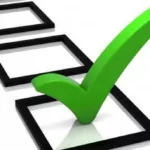Having a place for everything and keeping everything in its place is key to the success of any ongoing endeavor. Paying bills is one of those. Knowing how to organize your bills is a good way to make sure none are missed, and you only pay what you owe.
Consider these tips.
Designate a Storage Area
Bills tend to trickle in over the course of a month. If you pay at the beginning of the following month, keeping track of the envelopes in the interim can be tedious. This is why it’s important to set up a file, or a basket or another method of capturing them in one place. Put them there as soon as they arrive and do not deviate from this routine. That way, when it’s time to review your accounts, everything will be together in one place, saving you the hassle of hunting around for them.
Open Everything—Even if the Amount Due Never Changes
Even if you know the lease payment on your car is $250 every month, open the envelope and look at the statement anyway. There could be a change in the process, a change in the address to which payments should be remitted, or new fees of which you were unaware.
Your creditor could also commit a billing error. Sending the same payment each month without looking could put you on the hook for late charges, find your remittance logged as missed because it went to the wrong address, or you could pay for something you shouldn’t. Open all of your bills and look at each one of them before you pay.
Establish a Set Routine
Get in the habit of paying everything at the same time. Whether it’s weekly, biweekly, monthly or whatever. If you do everything the same way every time you’ll avoid missing things by accident. Choose a time when your place is quiet, so you won’t be distracted by household activities. Distractions can lead to forgetting to enclose a check, place a stamp, writing the wrong account number, or any of another litany of things to make the payment go through.
Ditch Paper—Go Digital
Paying bills online offers a number of advantages. Records are kept automatically, you won’t have to buy as many stamps anymore and you can order fewer checks. Payments usually clear within a day or so of making them, which helps you better keep track of your checking account.
Best of all, it’s faster, easier on the environment and less hassle too. Just make sure you keep a ledger in which you record the date the bill was paid, the amount you submitted and the confirmation number the payment generated in case there are discrepancies at some point.
Set up a specific email address for your bills to use when you register for online bill payments. This brings all of them into one queue and minimizes the chance you’ll miss something because it got caught in a spam filter or mixed up with other messages.
If You Fall Behind
Things happen despite our best efforts to stay on track. Medical emergencies, job loss or any of a plethora of unfortunate circumstances can hamper your ability to stay current.
If this happens and you find yourself struggling to make minimum payments, consider using a debt settlement service as a potential solution. However, before you sign up, take some time to study if a company is reputable.
For example, reading up on Freedom Debt Relief reviews can show how well that company performs for their clients. All other things being equal though, these tips for how to organize your bills will help you maintain your good financial standing.








